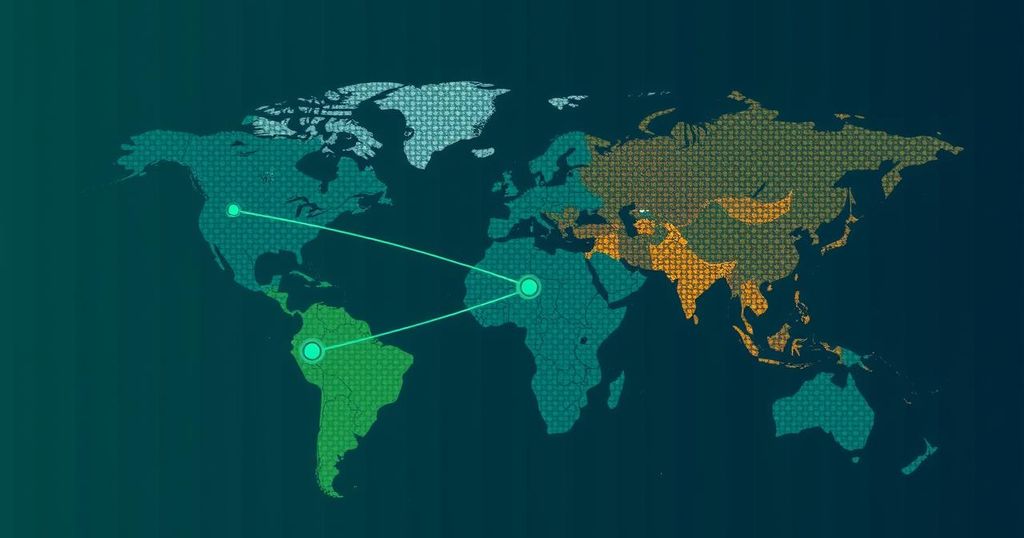Legal actions are increasingly being pursued globally by communities contesting the fairness of climate policies, highlighted in a new study identifying the trend of “just transition litigation.” This form of litigation seeks to harmonize climate action with social justice, particularly for underrepresented groups. Cases from Chile, Norway, and Colombia exemplify this push for equitable treatment as communities fight against policies that adversely affect their rights and livelihoods amid the green transition.
Across the globe, legal avenues are being pursued by individuals and communities seeking to contest the fairness of climate policies. Recent legal cases illustrate how coal workers are holding their governments accountable for job losses, while Indigenous groups are invoking the courts to halt wind farm developments and anti-deforestation initiatives that infringe upon their cultural rights. These instances are emblematic of a burgeoning trend identified as “just transition litigation,” which was highlighted in a study conducted in collaboration with researchers from 16 universities, and documented in the journal Nature Sustainability. The term “just transition litigation” encapsulates the movement to ensure that the transition to a low-carbon economy is harmonized with social justice, particularly for vulnerable groups who are disproportionately affected. This distinction is crucial as it separates these cases from traditional climate litigation, which primarily emphasizes accountability for emissions reduction failures. Initiated in 2020, this study observed an uptick in legal actions deviating from established models of climate litigation. Notably, union workers in Chile successfully litigated against their government for exclusion from discussions about coal plant phase-outs, with the Supreme Court underscoring the necessity for an inclusive just transition strategy. In Norway, the Sami Indigenous people’s challenge against wind farm permits was upheld by the Supreme Court on grounds of cultural rights infringement related to their traditional reindeer herding practices. Additionally, Indigenous communities in Colombia argued against anti-deforestation measures that undermined their rights to cultural integrity and self-determination. The essence of just transition litigation is to advocate for fairness and inclusiveness amid the shift toward a greener economy. Typically, plaintiffs in these cases are underrepresented groups, including workers, Indigenous populations, women, children, and minorities, who may face disadvantages during the transition. Importantly, these lawsuits do not include corporations seeking to protect their interests at the expense of societal equity. Fundamentally, this litigation seeks justice, functioning to highlight the inequities resulting from climate policies that lack consideration for affected communities. The dilemma is that while the focus remains on reducing greenhouse gas emissions, scant attention is directed towards achieving equitable outcomes. Governments in the European Union, United Kingdom, and United States are currently streamlining efforts toward climate action, underscoring an urgent need for comprehensive and participatory approaches to these transitions. As communities increasingly resort to legal measures, this research underscores the necessity for policymakers to adopt transparent and equitable procedures. Engaging those most impacted in decision-making processes concerning land ownership and employment opportunities is vital. The aim is to not only protect marginalized groups but also to cultivate broader public backing for climate initiatives.
The article discusses the trend of “just transition litigation,” wherein various communities challenge climate-related policies that they perceive as unjust. This litigation aims to ensure that the transition to a low-carbon economy is fair and socially just, particularly for those disproportionately affected. The study referenced highlights numerous cases, particularly involving Indigenous groups and marginalized communities, who have taken legal action to assert their rights and interests within the evolving climate policy landscape. It differentiates this movement from traditional climate litigation by emphasizing social justice rather than merely accountability for emissions reductions.
In conclusion, just transition litigation reflects a critical shift in how communities are asserting their rights amidst the transition to a sustainable economy. By ensuring that affected individuals and groups are included in discussions about climate policies that impact their livelihoods and cultures, this burgeoning legal trend advocates for more equitable approaches to climate action. As legal actions increase, it is imperative for policymakers to heed these calls for inclusivity and justice to solidify public support for climate initiatives and ensure that the transition is fair for all stakeholders involved.
Original Source: theconversation.com






